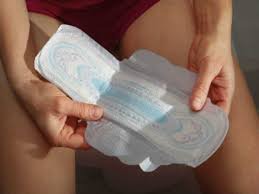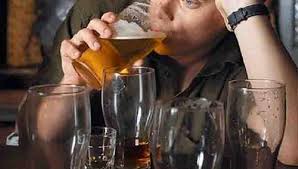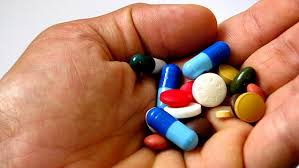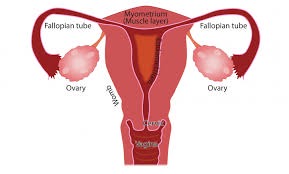Menstruation popularly known as the period is natural vaginal bleeding that happens as part of a woman’s monthly cycle. Any month, your body readies for pregnancy. If no pregnancy occurs, the uterus, or womb, sheds its lining. The menstrual blood is partly blood and partly tissue from inside the uterus.
Every lady of 13 years old, and above is due for menstruation because, at this period, the hormone responsible for it to occur is ready. As a woman, your period is your body to ways of releasing body’s tissues that it no longer needs. Every month, your body prepares for pregnancy. The lining of your uterus gets thicker as preparation for nurturing a fertilized egg.
Here Are Things You Should Avoid During Your Period.
Avoid wearing pad for too long
Hooked water provides a breeding ground for bacteria and fungus, and wearing a pad for too long can lead to disease, involving a yeast infection. A damp pad and friction can also cause discomfort or the dreaded pad rash and make you more endangered to infection. If you do not change your pads continually (at least every 5-7 hours), you are much more liable to develop epidemics and vaginal yeast infections with the side education of bad odor. No matter how light your flow is, it’s always safe to change your pad regularly.
 Drinking Alcohol
Drinking Alcohol
Many women are sufferers of this particular act, alcohol commonly consists of a chemical that is dangerous to your heart, kidney, lungs, brain, and other vital parts of your body. Too much consumption of alcohol can cause abnormal menstrual cycles. Alcohol temporarily enhances levels of estrogen and testosterone, which may obstruct normal hormonal fluctuations that are essential for ovulation. As a result, your periods may become unstable.
 Wrong Medications
Wrong Medications
One of the more common illegal drugs that affect is cocaine. Especially usual cocaine use, may disrupt your period menstrual cycle, interfere with sex hormone levels, and stop ovulation entirely. Several prescription and can nonprescription medications influence the menstrual cycle. A few examples are Aspirin and (called blood thinners) that prevent blood clots. Nonsteroidal anti-inflammatory other (NSAIDs), such as ibuprofen (for example, Advil or Motrin) and naproxen (for example, Aleve) drugs.
 Please this article is suggested for all ladies who want to live healthily. Put effort to follow the tips of this article and you can also share with the large society thanks.
Please this article is suggested for all ladies who want to live healthily. Put effort to follow the tips of this article and you can also share with the large society thanks.

 Football1 week ago
Football1 week ago
 Health & Fitness2 days ago
Health & Fitness2 days ago
 Comments and Issues1 week ago
Comments and Issues1 week ago
 Featured6 days ago
Featured6 days ago
 Education7 days ago
Education7 days ago
 Business7 days ago
Business7 days ago
 Business6 days ago
Business6 days ago
 Crime7 days ago
Crime7 days ago

